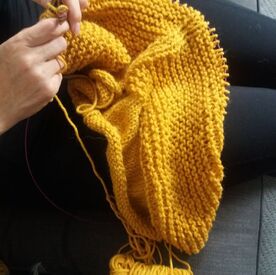 My grandfather died at the beginning of October. He was 96 years old and had lived a long and extraordinary life. His health had been declining and while we knew he wouldn't be with us forever, there's a deep sadness in knowing that I'll never see him again. But while there's sadness, there's also joy, and love, and gratitude. My grandfather lived an extraordinary life. He was creative and curious and taught me to be too. And he taught me to be open to the beauty, ideas, wonder and wisdom of many cultures. That's a gift I'll treasure for the rest of my life. I'm profoundly grateful to have grandparents in my life until I was in my late 40s. A lucky combination of good genes, and a tendency to have children young meant I had more time with them than many people get. As we head towards a new period of lockdown, I am also deeply grateful that my family were able to gather for his funeral to connect, remember and say our goodbyes - a rare and precious moment of togetherness in a year that's kept us apart. My grandmother is 96, sharp as a tack, and very much still with us. And it is my grandmother who taught me to knit. Long before I ever learnt to meditate I learnt to turn a spool of yarn into intricate interconnected loops which, with enough patience, sometimes even turn into warm soft things to snuggle up in when the nights turn dark and cold. The nights are turning cold and dark now, sure enough. And I still knit. In fact my response to this strange year, with so much time spent at home, has been to knit, and knit, and knit. I was working on this lovely yellow jumper today when I realised just how many years it's been since knitting gave me a first taste of the mindful awareness that I now find in meditation. The same balance of gently focused attention, keeping coming back to my body, my hands, the anchor of awareness resting lightly in my fingers. If my body is too tight, breath shallow, shoulders tense and gripping then it shows in my knitting - stitches grip and become hard to work, the whole piece becomes tight and contracted. If I can soften, ease, sigh and let go a little but stay aware then the knitting, like the meditation, is more likely to flow. When my attention is scattered and I knit, I make mistakes. I have to unslip the loops, unravel and start over. So with meditation... when my mind is busy and agitated, can I remember to let breath unspool like the softest yarn? Can I let the chattering of an over-busy mind unravel; coming back, over and over to the softness of breath? Can I let this moment unfold, just as it is, without forcing or holding, pushing or pulling... starting over with each breath? These are tough times we are living in. Life is not as we might want or choose it to be, in so many ways. These strange circumstances can leave us feeling disconnected and discombobulated. There is loss, and loneliness. But there are still moments of joy and gratitude to be found. The autumn leaves, the golden yellow yarn of a new jumper, the sun when it shows itself from behind a cloud... Drink them in. Soften around them. Turn your face towards the sun and kick up the leaves, even if they're soggy. And in the moments when things are tough, when it feels it's all unravelling, take a breath. And another. Let your shoulders drop away from your ears, unclench your jaw, and soften your tongue away from the roof of your mouth. Take another breath. Let it out with a sigh and turn your face towards the sun, even if it's behind a cloud. Even if you get rain in your eyes. Be kind to yourself, and to each other. The world needs wisdom, kindness, and joy more than ever, and so do we.
0 Comments
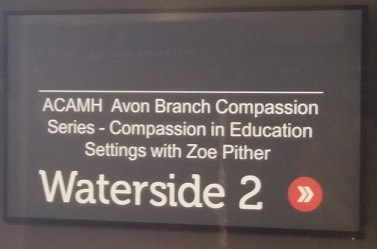 Last week I was invited to give a talk for the Association for Child and Adolescent Mental Health about Compassion in Education Settings. I've worked in diversity & inclusion and student services for many years, combined with my mindfulness practice, it felt all the different areas of my work came together and made sense. After all, I've built a career out of fighting for equality in education and helping other people feel better. I'd been working towards this moment for years. I planned the outline months ago: a broad overview of the context around mental health and wellbeing in schools and higher education; a summary of the latest research into the benefits of mindfulness practice and then wrapping it up in a conclusion about the absolute necessity of teaching compassion within our education system - not just to our teachers, nurses, doctors as the literature reflects, but also to our lawyers, our engineers, our entrepreneurs, our bankers... because surely if we can teach people to make compassionate decisions about their work, whatever their work is, then that can only be good for society, humanity and ultimately the planet, right? Well, yes... but when I came to start putting together the detail of the talk things took a different track. Because it turns out that what I was discovering was that developing self-compassion improves self-efficacy and makes us better learners. It makes us more resilient, less afraid of failure and better able to cope with it when it happens, more interested in learning for it's own sake, less likely to procrastinate, better able to estimate our own abilities. Self compassion is strongly associated with optimism, happiness, positive affect, personal initiative, wisdom, curiosity and exploration, extroversion, agreeableness, and conscientiousness. Studies have found that changes in self-compassion and wellbeing go hand in hand for both adults and adolescents. Not only that but boosting our self-compassion also makes us more compassionate towards others. So actually, teaching self-compassion that could revolutionise education for young people and adult learners alike. 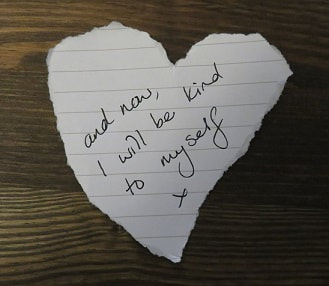 Dr. Kristin Neff describes self-compassion as 'the ability to hold one's feelings of suffering with a sense of warmth, connection, and concern.' So it means valuing yourself, not because you’ve judged yourself positively and others negatively but because you’re intrinsically deserving of care and concern - just like everyone else. Where battling for self-esteem can leaves us caught in a trap of comparison and judgement, powerless and distraught, self-compassion is at the heart of empowerment, learning, and inner strength. It means treating our own pain and struggles with the same kindness that we would offer someone we care for deeply. Sounds good huh? Except, somehow or other many of us struggle to do that. We tend to be much harder on ourselves than we would on pretty much anyone else. Whether you believe it's innate or driven by culture we compare ourselves to others and find ourselves wanting, and this can lead to self-criticism and shame. What if we could hold our own suffering with the deep tenderness we would have for a child or a loved one who was feeling sad or afraid? Honestly, for me this has been a lifetime's work - see December's blog for example. So when this talk was coincidentally followed by a few days of emotional roller-coaster, I knew which practices to turn to and how to check-in and treat myself with true tenderness and care. So my advice is don't wait until you're feeling bad. Can you start strengthening your self-compassion now? That way you'll have a reserve of self-kindness when you need it most, ready for the difficult times that we all experience at some point. If you're in any doubt about the power of self-compassion then I wholeheartedly recommend taking some time to explore Kristin Neff's work. She's probably the leading researcher focusing on self-compassion at the moment and she's also a deeply generous practitioner. Her website is full of resources and free downloads that can help you build those self-compassion muscles. Tara Brach also has some excellent self-compassion resources including her guided mediation the RAIN of self-compassion. So, what are you waiting for? The world needs you to treat yourself kindly. Dark autumn days, before still point of the solstice and the return towards the light. An instinctive urge to hunker down and turn inwards. Midwinter folktales are filled with dark mysteries: the old year must die to feed Spring's rebirth. Energy levels shift. In my practice I am drawn to softening, slowing down, to stillness and deep contemplation. Even as we light fires and candles against the external darkness, there is an invitation to turn towards our shadow; hold space for and honour our inner darkness and depths.
|
Archives
October 2020
Categories |
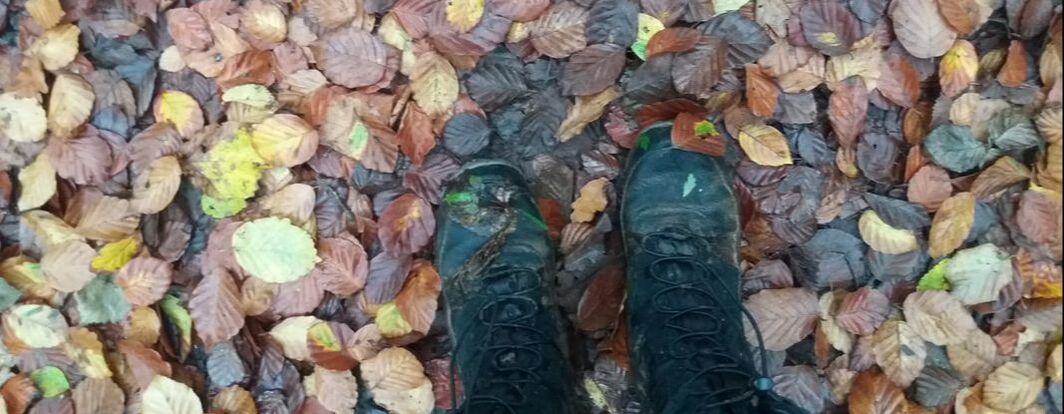
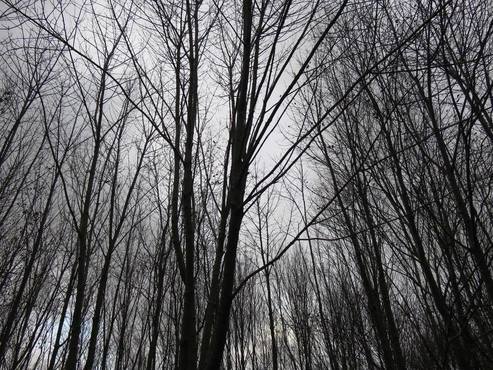
 RSS Feed
RSS Feed
